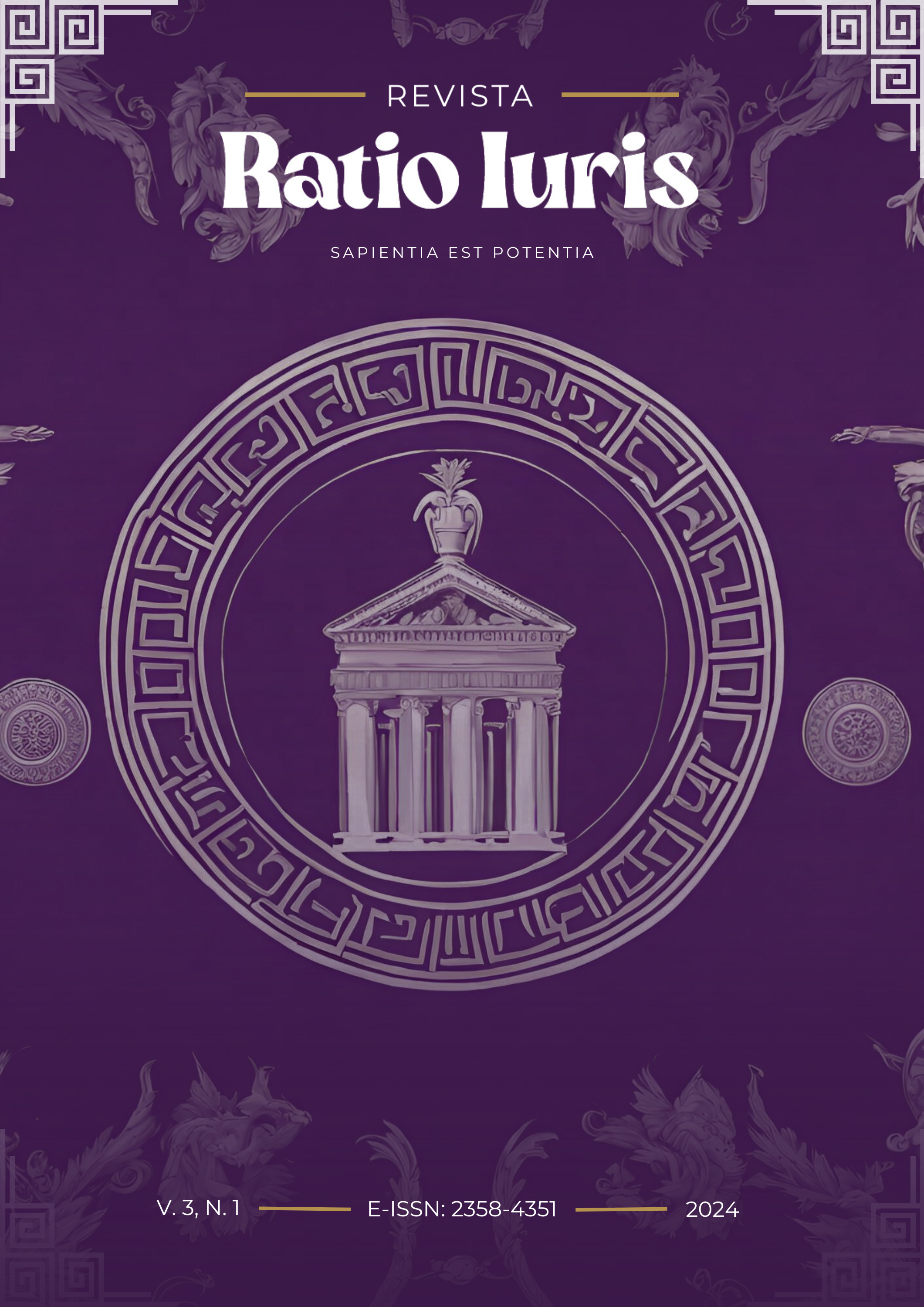The Impact Of Racial Profiling In Criminal Justice: Analysis Of Habeas Corpus 208.240/SP
ANÁLISE DO HABEAS CORPUS 208.240/SP
Keywords:
Racism, Racial profiling, Police approach, HC 208.240/SPAbstract
The research addresses racial profiling in police action in Brazil, which often leads to the production of illicit evidence and unfair convictions. The study analyzes the legislation that deals with the topic, in addition to discussing the understanding of the courts of justice and higher courts in Brazil regarding the objective and subjective criteria to characterize the well-founded reason for personal searches without a court order. The specific case that is about to be judged at the Federal Supreme Court (STF) deals precisely with a habeas corpus filed by the Public Defender's Office of the State of São Paulo (DPSP), aiming to annul the evidence obtained through a personal search, on the grounds that it was illegal the evidence produced during the police approach, using structural racism as one of the arguments. The research is relevant to understanding racial discrimination in criminal justice and the consequences of this issue, which have political, legal and social relevance. Based on the cataloged data, the research concluded that the police prefer to approach people who fit a stereotype of criminals in Brazil, being poor, young men, with low education and who, in most cases, live in peripheral areas. Therefore, there is no way to dissociate structural racism, which, in addition to color, directly influences social, economic and political, and mainly legal, issues.
Downloads
References
AGÊNCIA PÚBLICA. Negros são mais condenados por tráfico e com menos drogas em São Paulo. Disponível em: <https://apublica.org/2019/05/negros-sao-mais-condenados-por-trafico-e-com-menos-drogas-em-sao-paulo/>. Acesso em: 20 jun. 2023.
ALEXANDER, Michelle. A nova segregação: racismo e encarceramento em massa. São Paulo: Boitempo, 2018.
ALMEIDA, Silvio. O que é racismo estrutural? Belo Horizonte: Letramento, 2018.
ALVES, Leonardo Barreto Moreira. Manual de Processo Penal. São Paulo: Editora JusPodium, 1632 p, 2021.
BRASIL. Decreto n.º 65.810/1969. Promulga a Convenção Internacional sôbre a Eliminação de tôdas as Formas de Discriminação Racial. Disponível em: <http://www.planalto.gov.br/ccivil_03/decreto/1950-1969/D65810.html>. Acesso em: 18 jun. 2023.
______. Decreto-Lei n.º 3.689, de 03 de outubro de 1941. Código de Processo Penal. Disponível em: <http://www.planalto.gov.br/CCIVIL/Decreto-Lei/Del3689.htm>. Acesso em: 17 jun. 2023.
______. Superior Tribunal de Justiça. Informativo 651: Revista pessoal. Exclusividade das autoridades judiciais, policiais ou seus agentes. Invalidade da revista pessoal realizada por agente de segurança privada. Provas obtidas. Ilicitude. HC 470.937-SP, Rel. Min. Joel Ilan Paciornik, Quinta Turma, por unanimidade, julgado em 04/06/2019, DJe 17/06/2019. 2019a. Disponível em: <https://www.stj.jus.br/publicacaoinstitucional/index.php/informjurisdata/article/view/3876/4102>. Acesso em: 18 jun. 2023.
______. Superior Tribunal de Justiça. Informativo 659: Revista íntima. Denúncia anônima. Fundamento exclusivo. Impossibilidade. Ilicitude das provas obtidas. REsp 1.695.349-RS, Rel. Min. Rogerio Schietti Cruz, Sexta Turma, por unanimidade, julgado em 08/10/2019, DJe 14/10/2019. 2019b. Disponível em: <https://www.stj.jus.br/publicacaoinstitucional/index.php/informjurisdata/article/view/3867/4093>. Acesso em: 18 jun. 2023.
______. Superior Tribunal de Justiça. Informativo 735: A mera alegação genérica de "atitude suspeita" é insuficiente para a licitude da busca pessoal. RHC 158.580-BA, Rel. Min. Rogerio Schietti Cruz, Sexta Turma, por unanimidade, julgado em 19/04/2022, DJe 25/04/2022. Disponível em: <https://processo.stj.jus.br/jurisprudencia/externo/informativo/?acao=pesquisar&livre=%22RHC%22+com+%22158580%22>. Acesso em: 18 jun. 2023.
______. Supremo Tribunal Federal. Habeas Corpus 176.473 Roraima. Habeas Corpus. Alegada prescrição da pretensão punitiva. Inocorrência. Interrupção da prescrição pelo acórdão confirmatório de sentença condenatória. Disponível em: <https://redir.stf.jus.br/paginadorpub/paginador.jsp?docTP=TP&docID=753767837>. Acesso em: 18 jun. 2023.
______. Supremo Tribunal Federal. Habeas Corpus 208.240 São Paulo. Disponível em: <https://portal.stf.jus.br/processos/detalhe.asp?incidente=6287873>. Acesso em: 18 jun. 2023.
CORTE IDH. Caso Fernández Prieto e Tumbeiro vs. Argentina. Mérito e Reparações. Sentença de 1º de setembro de 2020. Sentença aprovada em San José, Costa Rica, por meio de sessão virtual. Disponível em: <https://www2.camara.leg.br/atividade-legislativa/comissoes/comissoes-temporarias/especiais/56a-legislatura/pl-8045-10-codigo-de-processo-penal/expedientes-recebidos/manifestacoes-recebidas-1/SentenaFernandezPrietoeTumbeiro.pdf>. Acesso em: 15 jun. 2023.
DIELÚ, Nathália. O baculejo tem cor. Fogo cruzado, 2022. Disponível em: <https://fogocruzado.org.br/o-baculejo-tem-cor>. Acesso em: 16 jun. 2023.
IDDD; DATA_LABE. Por que eu? Como o racismo faz com que as pessoas negras sejam o perfil alvo das abordagens policiais. Disponível em: . Acesso em: 15 jun. 2023.
LOPES JR, Aury. Direito Processual Penal. 19. ed. São Paulo: SaraivaJur, 2022, 1.272 p.
ONU. Grupo de Trabalho da Força-Tarefa de Implementação do Contraterrorismo sobre a Proteção dos Direitos Humanos durante o Combate ao Terrorismo, Guia Básico de Referência de Direitos Humanos: Parando e Revistando Pessoas no Contexto do Combate ao Terrorismo (Basic Human Rights Reference Guide: The Stopping and Searching of Persons in the Context of Countering Terrorism). Nova Iorque: ONU, 2014. [Cartilha]. Disponível em: <https://www.ohchr.org/EN/ 167 newyork/Documents/StoppingAndSearching_en.pdf>. Acesso em: 21 jun. 2023.
____. Prevenindo e Combatendo o Perfilamento Racial de Pessoas Afrodescendentes: boas práticas e desafios. Nova Iorque: ONU, 2020. [Cartilha]. Disponível em: <https://acnudh.org/load/2020/12/1821669-S-DPI-RacialProfiling_PT.pdf>. Acesso em: 19 jun. 2020.
PAIVA, Caio.; HEEMANN, Thimotie Aragon. Jurisprudência Internacional de Direitos Humanos. 3. ed. Belo Horizonte: CEI, 2020.
RAMOS, Silvia et al. Negro trauma: racismo e abordagem policial no Rio de Janeiro. Rio de Janeiro: CESeC, 2022. Disponível em: <https://cesecseguranca.com.br/wp-content/uploads/2022/02/CESEC_elemento-suspeito_final-3.pdf>. Acesso em: 22 jun. 2023.
Downloads
Published
How to Cite
Issue
Section
License
Copyright (c) 2024 Revista Ratio Iuris

This work is licensed under a Creative Commons Attribution-NonCommercial-NoDerivatives 4.0 International License.





